There are innumerable blogs and articles dedicated to event management & ticketing online, but nobody has the time to read them all.
If you’re looking for a one-stop solution for the hassle of event management, we have just the right tool for you.
This tool is the most handy if you want to advance in the events sector. The answer is none other than QR Codes.
Using event ticket QR Codes for event ticketing can streamline the whole ticketing process altogether and provide you an edge for easy attendee management.
In this blog, we will dive deep into the realm of event ticket QR Codes and understand their phygital role in event management.
These simple yet powerful codes are changing the way organizers manage entry, enhance security, and provide a seamless experience for attendees. Keep reading!
A. Understanding QR Codes
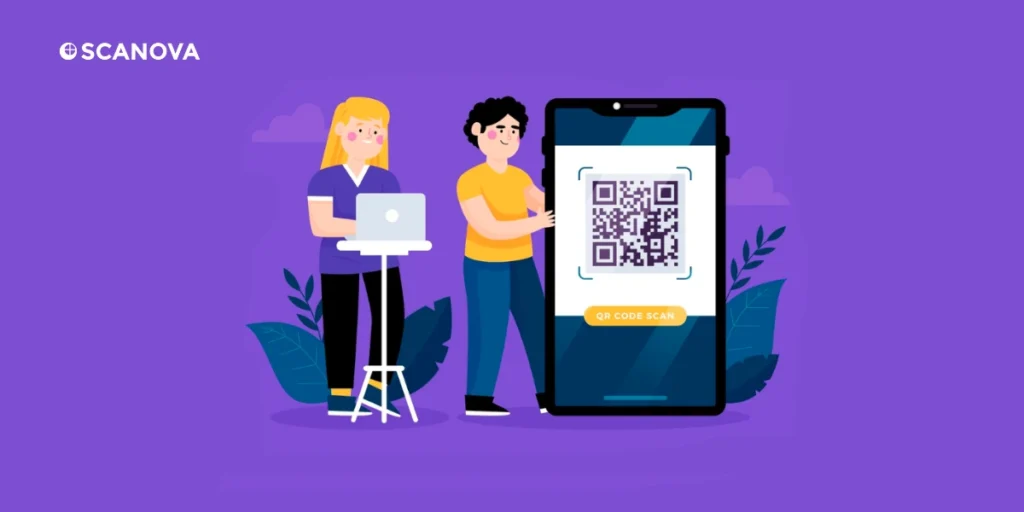
QR Codes, short for Quick Response codes, are two-dimensional barcodes that can store a variety of data, from simple text to website URLs, contact information, and more.
Initially developed in Japan in the mid-1990s for tracking automotive parts, QR Codes have since found widespread use in marketing, payments, and, most importantly, ticketing.
B. What is an event ticket QR Code
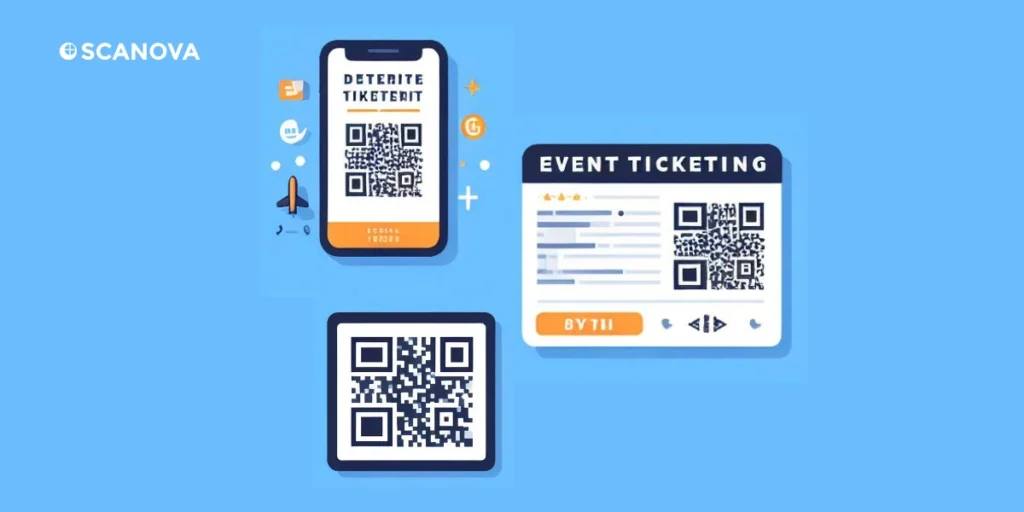
An event ticket QR Code is a unique, scannable code printed on your ticket that contains all the information about your specific ticket purchase.
It’s like a digital fingerprint for your ticket, replacing the traditional barcode system. Here’s a breakdown:
I. What it looks like
- A square image made of black and white squares and dots.
- Each event ticket QR Code is unique and different from every other code for the same event.
II. What data does an event ticket QR Code contain
An event ticket QR Code typically contains Information about your ticket, this information could be details such as:
- Event name and date
- Ticket type and section
- Your name or order number
- Venue of the event and timings
In some cases, additional information like seat number, dietary restrictions etc. can also be made available using an event ticket QR Code.
III. What it’s used for
- Fast and easy check-in: Simply scan the event ticket QR Code with your smartphone at the event entrance.
This verifies your ticket instantly and grants you access. No more long queues or fumbling with paper tickets.
- Security and fraud prevention: Each event ticket QR Code is unique, making it almost impossible to duplicate or counterfeit, which ultimately results in minimizing ticket scalping and ensuring authenticity.
- Additional features: Some event ticket QR Codes can link to event websites, social media pages, or even interactive maps, enhancing your experience.
Overall, an event ticket QR Code is a convenient and secure way to manage your ticket and enjoy a smoother event experience.
Generate a QR Code For Your Unique Case
START TODAY!
C. Implementing QR Codes for event ticketing
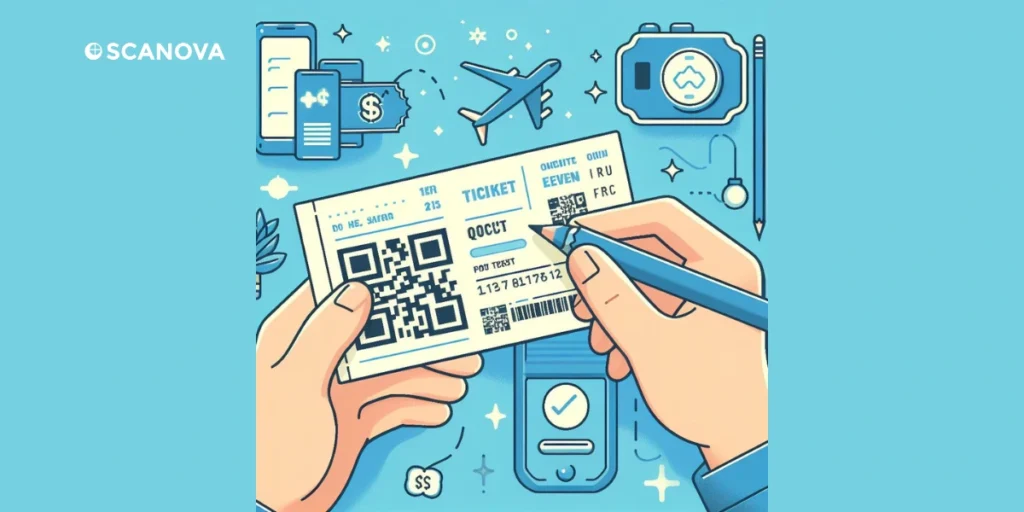
Integrating QR Codes into event ticketing is a straightforward process that involves the following steps:
Ticket Generation: Generate unique event ticket QR Codes for each ticket using ticketing software or platforms specifically designed for event management.
Ticket Distribution: Distribute digital tickets to attendees via email, mobile apps, or ticketing platforms. Ensure that attendees have easy access to their tickets on their smartphones.
Scanning at Entry: Equip event entrances with nothing but smartphones to scan the QRs and authenticate guest entries.
Analytics and Reporting: Utilize the data collected from QR Code scans to track attendance, analyze trends, and generate reports for future planning and decision-making.
D. How can I create event ticket QR Codes
QR Codes offer versatile applications for event ticketing, providing organizers with various options for generating and distributing tickets efficiently.
Here are some different ways you can create event ticket QR Codes:
I. To create tickets that are secure, customized, and trackable
Organizers can generate dynamic QR Codes that link to ticketing databases, enabling instant updates to ticket status, availability, and pricing.
To create tickets you can use Ticket Generator, Here are the steps:
1. Create an Account: To get started, enter your email address to create a free account. Credit card information is not needed.
2. Create the registration page and event: Organize an event, create the registration page, take registrations, and collect money for the tickets all through just one portal.
3. Create and Forward Tickets: Make event ticket QR Codes with your brand. Get them as downloadable PDFs, or send them to visitors electronically via mail or other modes.
Dynamic QR Codes allow for real-time updates and modifications, making them particularly useful for events with flexible ticketing options or last-minute changes.
4. Give Permission for Guests to Enter: Use the Ticket Validator mobile app to designate several event coordinators in order to expedite the guest entry validation process.
Event Ticket QR Codes can be encrypted with additional security features to prevent unauthorized access and ticket fraud.
5. Examine Event Data: Get real-time, comprehensive analytics on event attendance. Make the most of these insights to plan future events.
Moreover, these QR Codes can be personalized with attendee information, seat numbers, and other relevant details.
Attendees receive their digital tickets via email or mobile app, which they can then present for scanning at the event entrance.
Generate a QR Code For Your Unique Case
START TODAY!
II. To add QR Code to tickets generated via your information system
If you already have your dedicated ticketing systems, then, you can incorporate the creation of QR Codes into it.
How? Using QR Code API. You don’t have to visit a QR Code generator each time you require QR Codes for your tickets. You can just generate unique event ticket QR Codes in bulk.
Ticketing platforms like QR API provide APIs (Application Programming Interfaces) that allow seamless integration with other systems and applications.
Organizers can leverage these APIs to generate tickets programmatically, integrate ticketing data with event management software, and automate processes such as attendee check-in and registration.
III. To show a customized mobile landing page for your event
If you want to show event details and share multimedia information with your audience you can go for Scanova’s Event QR Code.
Follow the steps mentioned below to create your own Event Ticket QR Code:
1. Go to Scanova’s Event QR Code category.
2. On the page that loads, add a title, background color, and up to three banner images to personalize the landing page.
3. Provide event specifics, including the date, time, and location. Using the Show Venue Location On Maps option, enter the venue’s address in the map dialogue box and find the precise position.
4. Add the event description and other relevant information in the given box.
5. Make use of the Button feature to lead visitors to your website, a video, or an image gallery.
6. Additionally, provide the email address to be used for responses in order to enable the RSVP option.
7. If you would like attendees to post about the event on their social media accounts, choose to Include Social Sharing Buttons.
8. Select Continue once all event details have been added. And click Create QR Code after giving the code a name.
9. Use the Edit Design option and preview the QR Code on the loading page. You can select from two different QR Code designs:
- Custom Background Design: Enables you to overlay the QR Code on any image
- Custom Logo Design: Lets you add a logo and color
10. Click Download once the preferred design has been decided upon.
Note: Before choosing Export, select the QR Code picture format and dimensions according to your preference.
You can now use your downloaded Event QR Code. Streamline your event planning with this effective and adaptable instrument.
Beyond ticketing, QR Codes can be utilized to enhance attendee engagement and interaction at events.
Generate a QR Code For Your Unique Case
START TODAY!
Organizers can embed QR Codes in event programs, signage, or promotional materials, linking to additional content, surveys, or special offers.
This creates opportunities for attendees to further engage with the event and provides valuable insights for organizers.
Hence, by leveraging event ticket QR Codes and integrating them into existing systems through APIs, organizers can streamline event management processes, enhance security, and provide a seamless experience for attendees.
Whether generating tickets in bulk or facilitating on-demand printing, QR Codes offer a flexible and efficient solution for event ticketing in today’s digital age.
F. The benefits of using event ticket QR Codes
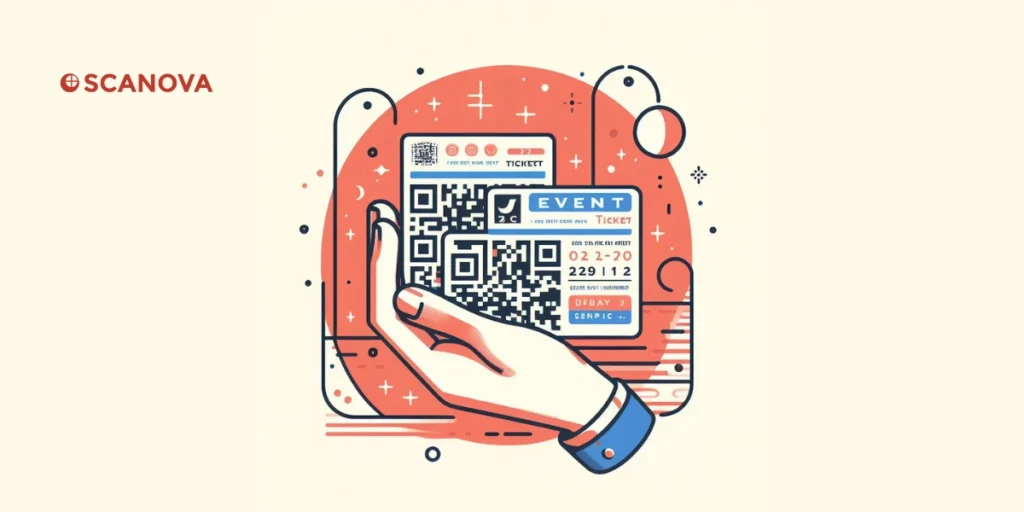
1. Convenience and accessibility
Gone are the days of lost or forgotten paper tickets. With QR Codes, attendees can simply present their tickets on their smartphones for scanning at the event entrance.
This eliminates the need for physical tickets, making the entire process more convenient for both organizers and attendees.
Additionally, attendees can easily transfer digital tickets to friends or family members with just a few taps on their devices.
2. Enhanced security
Event Ticket QR Codes offer improved security features compared to traditional paper tickets. Each QR Code is unique and can be encrypted with additional information such as seat numbers or attendee details.
This makes it much harder for counterfeit tickets to circulate, reducing the risk of fraud and ensuring that only legitimate ticket holders gain entry to the event.
3. Real-time tracking and analytics
By integrating event ticket QR Codes into ticketing systems, organizers gain access to valuable data in real-time.
They can track ticket sales, monitor attendance levels, and analyze attendee demographics to understand their audience better.
This data-driven approach enables organizers to make informed decisions and tailor future events to meet the preferences of their target audience.
4. Cost-effectiveness
Printing and distributing physical tickets can be expensive and time-consuming. Event ticket QR Codes eliminate the need for printing, cutting down on costs associated with materials, shipping, and manpower.
Furthermore, digital tickets can be easily reissued in the event of loss or changes, saving both time and resources for organizers.
G. Case Study: Coachella music festival
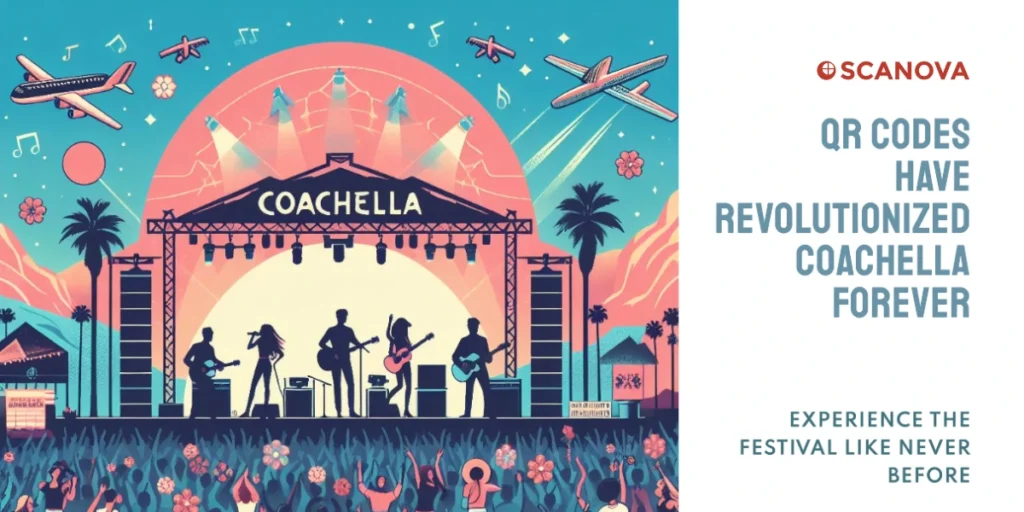
Coachella Valley Music and Arts Festival, the iconic Californian music festival, isn’t just known for its headlining acts and vibrant atmosphere; it’s also a pioneer in adopting innovative technologies.
One such example is their embrace of QR Codes for event ticketing, transforming the entry process and attendee experience.
Before 2015, Coachella relied on traditional paper tickets. This led to several challenges:
- Long queues: Checking paper tickets manually was time-consuming, resulting in frustrating wait times for eager attendees.
- Security concerns: Counterfeit tickets were a problem, impacting revenue and causing frustration for legitimate ticket holders.
- Limited data collection: Valuable insights into attendee demographics and arrival patterns were difficult to gather.
In 2015, Coachella partnered with a ticketing platform offering event ticket QR Code integration. This brought about a significant shift:
- Frictionless Entry: Attendees simply scanned their unique QR Code on their phones, leading to instant verification and entry. Queues significantly shortened, enhancing satisfaction.
- Enhanced Security: The unique nature of each code minimized counterfeit risks, protecting both the festival and attendees.
- Data-Driven Insights: QR Codes allowed Coachella to collect valuable data on entry times and demographics. This helped them optimize future logistics, marketing strategies, and even stage schedules.
- Engaged Attendees: Some codes linked to festival maps, artist information, and social media platforms, fostering a more interactive and connected experience.
The results were positive. Attendees could breeze through the entry, maximizing their festival experience. This led to reduced entry wait times by 50%.
The adoption of event ticket QR Codes also minimized ticket fraud. Counterfeit ticket incidents dropped significantly, protecting revenue and ensuring fairness.
Valuable data insights that came from these dynamic QR tickets improved decision-making for future events, leading to better crowd management and resource allocation.
Event Ticket QR Codes enhanced attendee engagement and empowered attendees to personalize their experience and connect with the festival digitally.
Coachella’s success with QR Codes inspired other major events to adopt the technology. It demonstrates the numerous benefits for both organizers and attendees, paving the way for a more efficient, secure, and engaging event experience for all.
Generate a QR Code For Your Unique Case
START TODAY!
Impact Beyond Coachella
The impact extends beyond a single festival. QR Codes are becoming the standard for event ticketing across various industries, offering benefits like:
- Reduced environmental impact: Eliminating paper tickets promotes sustainability.
- Accessibility options: QR Codes can be displayed on various devices, catering to individuals with visual impairments.
- Scalability: The technology adapts to events of all sizes, from local concerts to large sporting events.
In conclusion, Coachella’s use of QR Codes showcases the transformative potential of this technology for event ticketing.
It offers a glimpse into a future where event experiences are smooth, secure, and personalized, leaving attendees free to focus on what truly matters: enjoying the music, the atmosphere, and the moment.
H. The future of event ticketing
As technology continues to evolve, the role of event ticket QR Codes in event ticketing is likely to expand further.
Integration with augmented reality (AR) and virtual reality (VR) experiences, for example, could enhance the overall event experience for attendees.
Additionally, advancements in blockchain technology may offer even greater security and transparency in ticketing processes, further mitigating the risk of fraud.
I. FAQs: QR Codes for event ticketing
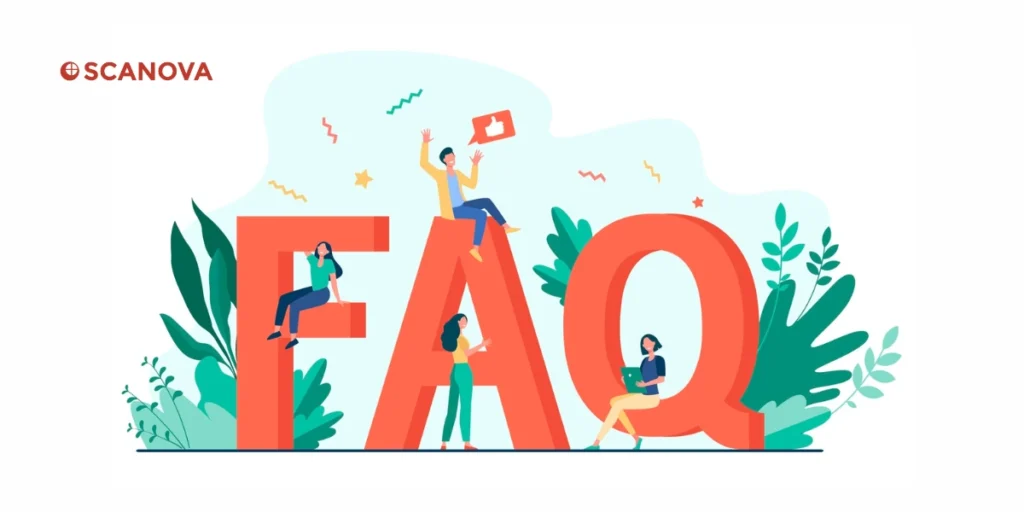
1. What is a QR Code, and how does it work in event ticketing?
A QR Code, or Quick Response code, is a two-dimensional barcode that can store information such as ticket details, attendee information, and event access credentials.
In event ticketing, QR Codes are generated and assigned to individual tickets, allowing attendees to present them for scanning at the event entrance.
2. How do I receive my event ticket with a QR Code?
Upon purchasing a ticket for the event, you will typically receive a digital ticket via email or through a mobile app.
This digital ticket will include a QR Code that serves as your entry pass. You can simply present the QR Code on your smartphone for scanning at the event venue.
3. What should I do if I lose my digital ticket with the QR Code?
If you lose your digital ticket or accidentally delete the email containing the QR Code, don’t worry. Most ticketing platforms allow you to retrieve your ticket by logging into your account or accessing your ticket confirmation email again.
Alternatively, you can contact the event organizer or ticketing provider for assistance in reissuing your ticket.
4. Can I transfer my ticket with a QR Code to someone else?
Yes, in most cases, you can transfer your digital ticket with a QR Code to another person if you are unable to attend the event.
Many ticketing platforms offer a ticket transfer feature that allows you to securely transfer your ticket to another individual.
Simply follow the instructions provided by the ticketing platform or contact customer support for assistance.
5. Are QR Codes secure for event ticketing?
QR Codes used for event ticketing can be encrypted and contain unique identifiers to enhance security and prevent fraud.
Additionally, event organizers often implement scanning systems equipped with validation algorithms to verify the authenticity of QR Codes and detect any duplicates or counterfeit tickets.
6. Do I need an internet connection to access my digital ticket with a QR Code?
In most cases, you will need an internet connection to access your digital ticket initially, such as when receiving it via email or downloading it from a mobile app.
However, once the QR Code is saved to your device, you typically do not need an internet connection to present it for scanning at the event entrance.
7. Can I use a screenshot of my QR Code for entry to the event?
While some event organizers may accept screenshots of QR Codes for entry, it is generally recommended to use the original digital ticket provided by the ticketing platform or app.
Screenshots may not always display properly or may be subject to tampering, potentially causing issues during entry. It’s best to use the official digital ticket whenever possible.
8. What happens if my QR Code is not getting scanned at the event entrance?
If your QR Code is not scanning properly at the event entrance, first ensure that your device’s screen brightness is turned up and that the QR Code is displayed clearly.
If the issue persists, seek assistance from event staff or ticketing representatives, who can help troubleshoot the problem and provide alternative entry options if necessary.
Conclusion
In conclusion, QR Codes are transforming the landscape of event ticketing, offering a myriad of benefits including convenience, enhanced security, real-time tracking, and cost-effectiveness.
As more organizers recognize the advantages of digital ticketing solutions, QR Codes are poised to become the standard for ticketing at events of all sizes and types.
Embracing this technology not only improves the attendee experience but also streamlines operations for organizers, paving the way for more efficient and memorable events in the future.
